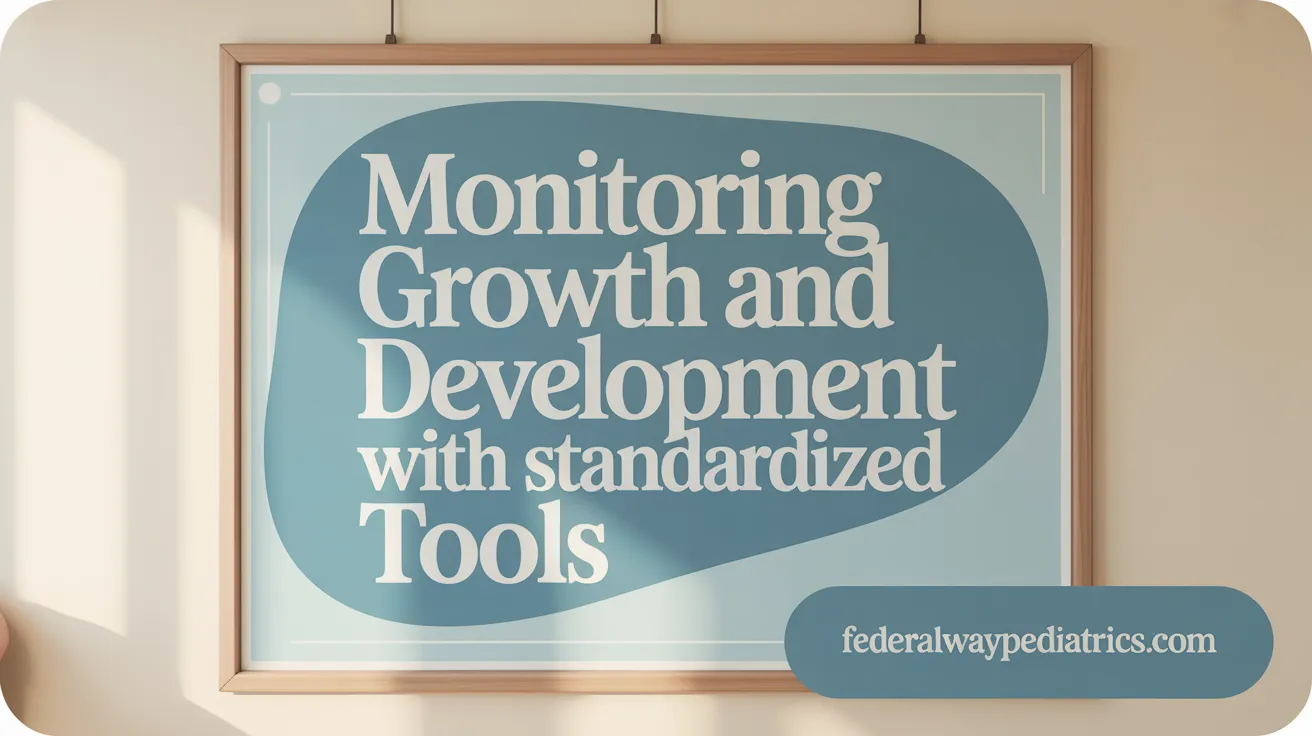Introducing the Importance of Well-Child Checkups
What Are Well-Child Checkups?
Well-child checkups are routine pediatric visits designed to monitor a child's overall health and development. These visits are essential preventive healthcare appointments that help detect and address physical, emotional, and social concerns early.
Purpose and Importance
These visits involve thorough physical exams, developmental screenings, immunizations, and evaluations of vision, hearing, and behavioral health. They provide an essential opportunity for families to discuss concerns about growth, nutrition, safety, and mental health with pediatric care providers. Early identification of issues such as developmental delays or heart conditions through these scheduled visits can lead to timely interventions that improve health outcomes.
Recommended Schedule
The American Academy of Pediatrics recommends a series of well-child visits starting in the first week after birth (around 3 to 5 days old) with more frequent visits during infancy and toddlerhood, then annual visits continuing through adolescence until age 21. This scheduled monitoring supports each stage of a child’s growth and development.
Relevance to Pediatric Cardiology and Comprehensive Health
For children in regions like Federal Way, Washington, routine well-child care integrates vital pediatric and pediatric cardiology assessments. These include screening for heart conditions using tests like electrocardiograms and echocardiograms when indicated. This comprehensive approach ensures early detection and management of health concerns, supporting a child's full potential for growth and wellness.
Monitoring Growth and Development Using Standardized Tools

How do well-child visits help in monitoring a child's physical growth and developmental milestones?
Well-child visits play a crucial role in tracking a child's physical health and development accurately over time. During each appointment, pediatricians measure key physical parameters, including height, weight, head circumference (for children under 2), and body mass index (BMI) for older children. These measurements are carefully recorded and plotted on standardized growth charts—the World Health Organization (WHO) charts are used for children under 2 years, while the Centers for Disease Control and Prevention (CDC) charts are applied for ages 2 and above.
Growth charts compare a child's measurements against population percentiles, showing how the child grows relative to peers. A consistent monitoring approach allows healthcare providers to detect any significant deviations in growth trends, such as drops in percentiles, which may signal health or nutritional concerns requiring further evaluation. Information on growth charts and child health provides more in-depth guidance.
Alongside physical growth tracking, developmental milestones are assessed through thorough screenings. Commonly used standardized tools like the Modified Checklist for Autism in Toddlers (MCHAT) and the Ages and Stages Questionnaire (ASQ) are administered at specific ages to identify early signs of developmental delays or autism spectrum disorders. These screenings enable early diagnosis and timely intervention, which significantly improve long-term outcomes.
By integrating growth chart data with developmental screening results, well-child visits provide a comprehensive picture of a child's overall health and development. They encourage proactive identification of issues, guiding caregivers and pediatricians in making informed decisions to support healthy growth trajectories and developmental progress.
Preventive Care: Immunizations and Screening Tests

What preventive measures do well-child visits provide?
Well-child visits play a vital role in protecting your child's health through Regular pediatric check-ups. A central part of these visits is the administration of scheduled Immunizations during well-child visits. Vaccines shield children from contagious and serious diseases such as measles, whooping cough, and HPV. These Benefits of immunizations not only safeguard the individual child but also contribute to public health by reducing disease spread, preventing millions of illnesses and deaths annually.
Beyond immunizations, well-child visits include important screenings such as Vision and hearing tests. These help identify problems early, allowing for timely treatment and better outcomes. Vital signs like blood pressure and oxygen levels are routinely checked during visits to detect early signs of heart issues. This is particularly important for children with family histories of cardiac conditions as described in Pediatric heart checkups.
Screenings also extend to evaluating risks for conditions like obesity, diabetes, and malnutrition. Growth monitoring with tools like Growth charts and child health supports early identification of nutrition-related concerns. Parents receive guidance on safety, injury prevention, and nutrition, emphasizing healthy habits that support overall development.
In addition, Mental health evaluations in pediatrics and behavioral evaluations provide opportunities to detect emotional or developmental challenges. This comprehensive preventive approach enables healthcare providers to deliver personalized and effective care, ensuring your child's well-being at every stage of growth.
Supporting Social, Emotional, and Mental Health in Children and Adolescents

How do well-child visits support a child's emotional and mental health?
Well-child visits play a vital role beyond physical health by assessing and supporting children’s social, emotional, and mental well-being. During these appointments, pediatricians conduct behavioral and mental health screenings designed to detect conditions such as autism spectrum disorder (ASD), attention deficit hyperactivity disorder (ADHD), anxiety, and depression early on.
Parents are encouraged to discuss any concerns related to their child's behavior, sleep patterns, nutrition, or family dynamics, creating an important space to address potential issues proactively. For adolescents, these visits provide confidential opportunities to foster responsibility for their own health and promote independence through one-on-one conversations with healthcare providers.
The repeated and consistent nature of these visits helps build a trusting relationship among the pediatrician, child, and family. This partnership supports ongoing monitoring and tailored care that attends to each child's physical, mental, and social health needs, ultimately improving outcomes and providing parents with guidance and reassurance along the way (Well-Child Visit Importance, Tracking Child Development, Visits for Special Health Needs, Preparing for Well-Child Visits, Child Measurements and Examinations, Immunizations During Visits, Discussing Growth and Milestones, Teen Health One-on-One Time, Post-Visit Follow-Up Plan, Contacting Healthcare Teams, AAP Visit and Immunization Schedules, Promoting Lifelong Health in Children, Adolescent Health Responsibility, Consistent Well-Child Visits).
Specialized Pediatric Cardiology Considerations in Routine Checkups
What role do well-child checkups play in monitoring children's heart health?
Well-child visits are integral for early detection and management of pediatric heart conditions. These visits often include assessments of vital signs such as heart rate, blood pressure, and oxygen saturation, providing initial clues to potential cardiac issues.
Pediatricians utilize non-invasive tools like electrocardiograms (ECGs) to monitor the heart's electrical activity and echocardiograms to evaluate structural and functional aspects of the heart. These tests are painless and critical for early cardiac screening, allowing identification of rhythm disturbances or anatomical anomalies before symptoms worsen.
Common triggers for referral to pediatric cardiology include heart murmurs detected during routine exams, chest pain, palpitations, dizziness, and cyanosis. Many childhood heart murmurs are benign, but comprehensive evaluation ensures that any serious conditions are not overlooked.
Children with a family history of cardiac disease or genetic syndromes such as Down syndrome or Marfan syndrome benefit from more vigilant cardiac assessments. Early identification coupled with specialized care reduces the risk of complications and optimizes long-term health.
In communities like Federal Way, Washington, integrated pediatric and cardiology services facilitate access to comprehensive heart care during routine checkups, ensuring children receive timely and expert evaluation. For more details on pediatric heart evaluations, see Child's heart clinic visit.
Addressing Barriers to Access and Encouraging Consistent Attendance

Why is it important to consistently attend well-child checkups and what barriers exist?
Consistently attending well-child checkups is vital for closely monitoring your child's physical growth, developmental milestones, and immunization schedule from newborn through adolescence. These visits allow healthcare providers to detect early signs of health issues such as developmental delays, vision or hearing problems, and chronic conditions, enabling timely intervention and better outcomes.
Despite the clear benefits, many families face significant challenges in maintaining regular attendance. Common barriers include lack of reliable transportation, conflicts with work schedules, and other socioeconomic factors. These issues particularly affect children enrolled in Medicaid and CHIP, who have markedly lower visit rates compared to those with private insurance, as noted in CMS initiatives to improve well-child care.
To help overcome these barriers, pediatric clinics in Federal Way, Washington, such as University Health and Seattle Children's South Clinic, offer comprehensive support. Services include free interpreter assistance for non-English speaking families and extended clinic hours, including evening and weekend appointments, which provide greater flexibility for working parents.
Moreover, statewide and national healthcare systems, including the Centers for Medicare & Medicaid Services (CMS), are actively working to improve attendance rates. They deploy initiatives like outreach programs, educational resources, and performance-based incentives to motivate providers and families to prioritize well-child visits. Collaborative efforts focus on reducing disparities by addressing transportation needs and other social determinants affecting care access, as detailed by CMS initiatives to improve well-child care.
Through these combined efforts, families in Federal Way and beyond can receive consistent, high-quality pediatric care that promotes their children's health and development effectively.
The Lifelong Benefits of Regular Well-Child Checkups
Comprehensive Health Monitoring
Regular well-child checkups provide essential monitoring of your child's physical growth, developmental milestones, emotional well-being, and heart health. These visits allow pediatricians to detect early signs of growth issues, developmental delays, behavioral concerns, and cardiac conditions, enabling timely intervention for improved outcomes.
Support for Ongoing Care
Parents are encouraged to adhere to the recommended AAP schedule, beginning shortly after birth and continuing through adolescence. Consistent visits foster a strong partnership between families and healthcare providers, ensuring questions and concerns about nutrition, behavior, and safety are addressed.
Enhancing Long-Term Health
Maintaining scheduled checkups enhances your child's overall health trajectory, reducing emergency visits and hospitalizations. Early identification and management of health challenges contribute to better quality of life and developmental success.
Local Commitment in Federal Way, Washington
Pediatric care providers in Federal Way emphasize a comprehensive, family-centered approach, including advanced pediatric cardiology services. This integration ensures children receive expert evaluations and personalized care, supporting healthy growth and heart health within the community.
